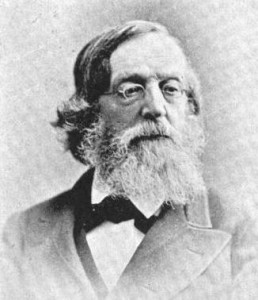In a recent blog post, David French, Senior Counsel at the staunchly Zionist American Center for Law and Justice, argues that in the face of violence,
Pacifism… is nothing more than compelled helplessness… [it] is thus the worst possible response to attack, not just tactically and strategically stupid in secular terms but also a direct abdication of a sacred responsibility.
So, with a clear conscience and firm conviction, our nation’s Christian citizens can and should send President Obama a clear message: ISIS should not be managed. It has to be crushed.
French seems to be taking his cue not from the Bible, as he claims, but from Thomas Hobbes, who argued,
Hereby it is manifest, that during the time men live without a common Power to keep them all in awe, they are in that conditions called Warre; and such a warre, as is of every man, against every man.
In other words, if we don’t give the government a monopoly on violence, we will be compelled to take matters into our own hands as individuals. However, according to the life and teachings of Christ, French points out that individual vengeance is forbidden. So, to paraphrase French’s post, “Thank God for the government, which can kick some ass on our behalf.” In the mind of French (who is also a Captain in the United States Army Reserve), not only is such a response to violence morally exemplary (literally a divine responsibility), it is also a shrewd tactical move.
In response to French’s argument, not only do I present the sum of human history, which conveniently refutes him on the tactical front, I also present the words of Martin Luther King, Jr., whose “strategically stupid” commitment to non-violence helped liberate millions of African Americans–and liberated their oppressors in the process:
Violence as a way of achieving… justice is both impractical and immoral. I am not unmindful of the fact that violence often brings about momentary results. Nations have frequently won their independence in battle. But in spite of temporary victories, violence never brings permanent peace. It solves no social problem: it merely creates new and more complicated ones. Violence is impractical because it is a descending spiral ending in destruction for all. It is immoral because it seeks to humiliate the opponent rather than win his understanding: it seeks to annihilate rather than convert. Violence is immoral because it thrives on hatred rather than love. It destroys community and makes brotherhood impossible. It leaves society in monologue rather than dialogue. Violence ends up defeating itself. It creates bitterness in the survivors and brutality in the destroyers.
Not only does history testify to the truth of MLK’s words, so do present circumstances in the Middle East and elsewhere. Think of how the Allies responded to the brutal atrocities committed by the Nazis and the Japanese, for example: They committed their own atrocities in the form of carpet bombing and nuclear strikes. The latter in particular is a perfect example of the “new and more complicated”problem of which MLK speaks. Introducing such weapons may have worked tactically in the short term (though it can be argued they were unnecessary to end the war), but they have created global instability and the potential for mutually assured destruction ever since (“a descending spiral ending in destruction for all”).
In the present, the only reason we’re dealing with ISIS right now (which is really just a new and more complicated incarnation of previous terrorist organizations) is because of America’s ongoing violent response to terrorists throughout the Middle East, which has created all sorts of instability and power vacuums for such groups to occupy. In fact, the stability across the entire Middle East and Africa is also a direct result of colonialism, going back centuries. On and on it goes.
French is convinced that that if someone doesn’t get vengeance on our enemies, our desire for justice will never be satisfied. If you equate justice with “vengeance” or “punishment,” then I agree. However, I don’t define justice that way. In my mind, a definition of justice that seems to align better with the life and teachings of Christ is “wrongs made right.” As Jesus says, “Satan cannot cast out Satan.” Therefore, violence can never solve the problem of violence. Even French will agree that, biblically speaking, Satan is the source of violence, seeing as he was a “liar and a murderer from the beginning.” So while French supposes he is teaching a Christian response to violence, he is actually manifesting what some might call the spirit of antichrist.
French is correct that you won’t find anything in the Bible ordering governments to turn the other cheek, to love their enemies, and so forth. But if such practices are effective at diffusing conflict between individuals, doesn’t it seem logical that the same tactics would work between nations? Surely we have enough evidence to prove that going the opposite route–mirroring the violence brought against us by our enemies–doesn’t solve anything, at least not in the long term.
As long as individuals and governments cling to violence as the only viable “solution” to violence, we have nothing to look forward to except mutually assured dehumanization and destruction. As Raven Foundation founder Suzanne Ross says in her response to French:
In our search for peace and security we have paradoxically created chaos and a loss of distinctions so extreme that we cannot tell combatants from civilians, enemies from comrades, legitimate targets from innocent bystanders. We entered into this morass as victims, or so we thought at first, innocent victims on a quest for justice. But justice turns out to be elusive, to have turned against us because of all the victims we have created in our pursuit of the ones who made us into victims. When is justice another name for vengeance? When is a nation more at risk from its own misguided sense of self-righteousness than from any outside enemy? When is God’s purpose betrayed by God’s people?
In response to her final question, I would say, “In the words and sentiments of people like David French.”














